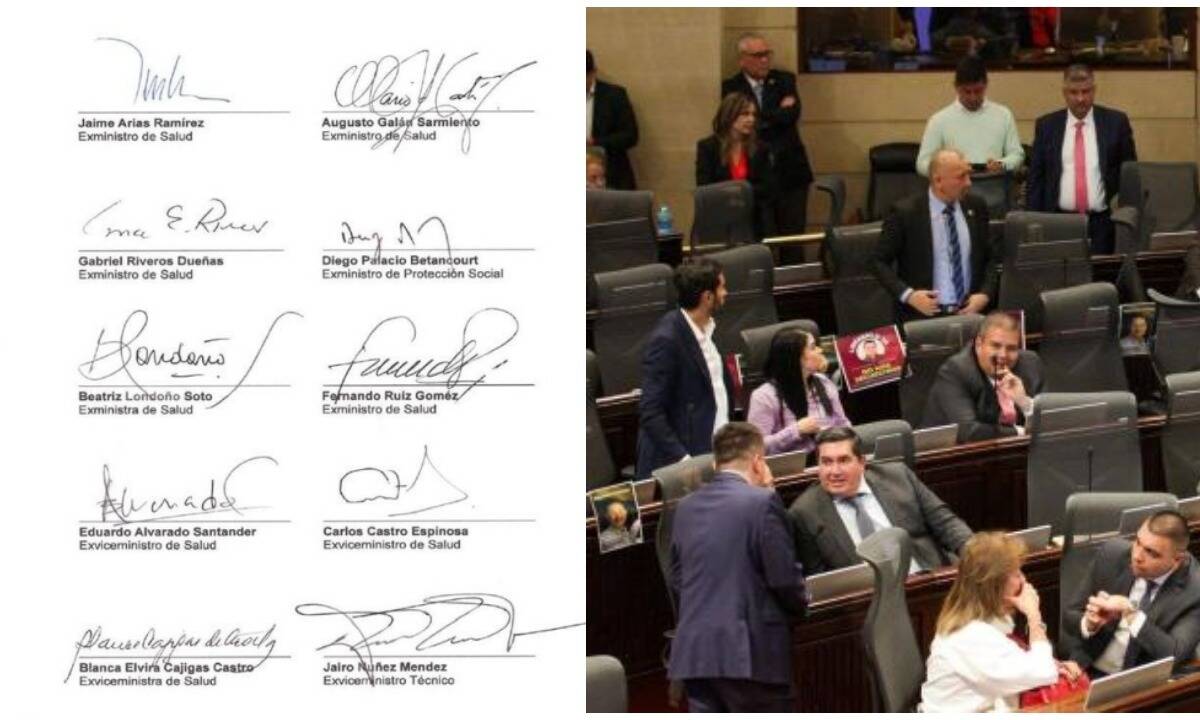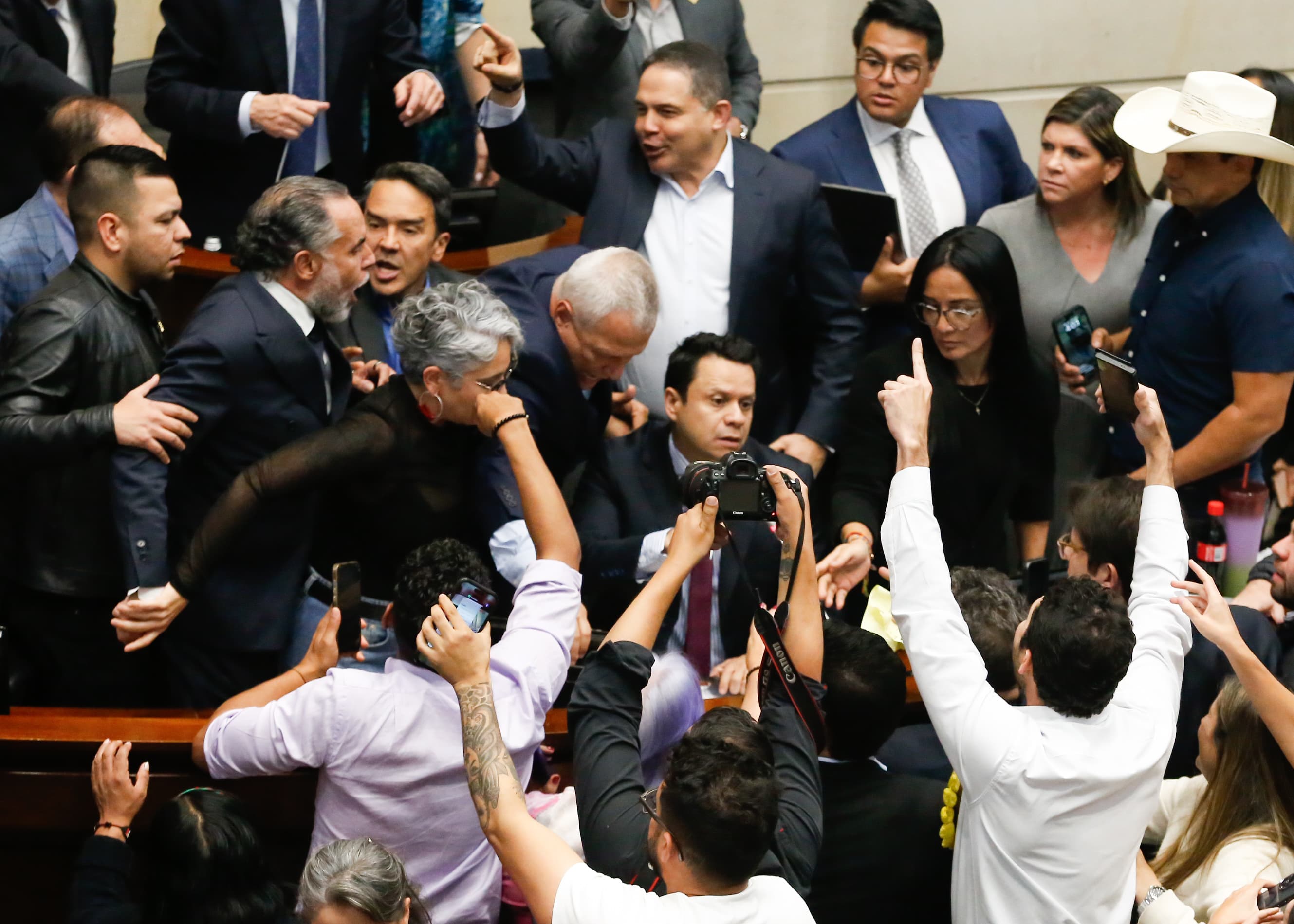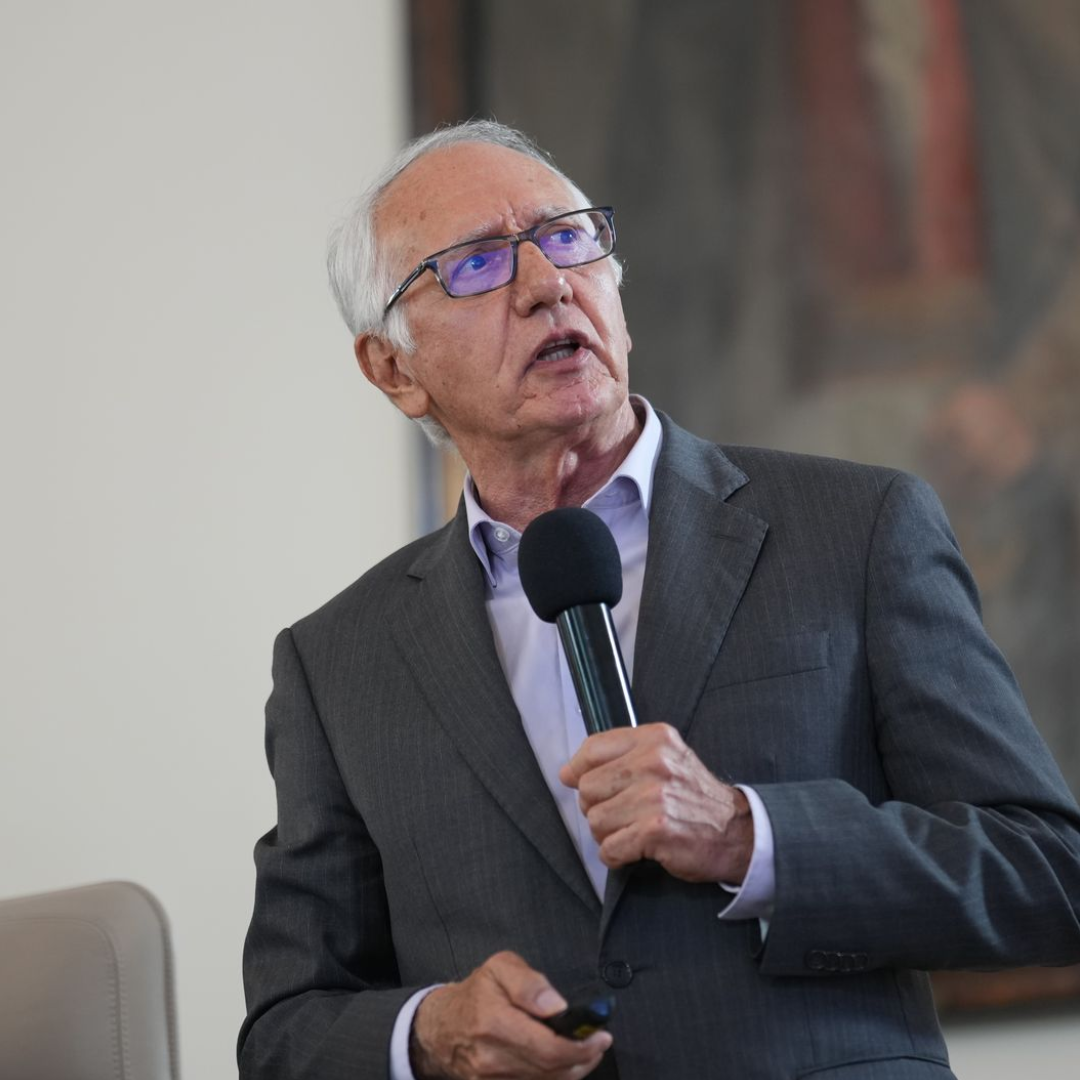'Government seeks to nationalize health care with polarizing, unnecessary, and electoral proposals': Former health ministers

Over the past three years, the Colombian healthcare system has faced sustained and growing deterioration. Various technical, academic, and citizen reports, based on official sources, have documented a significant increase in requests, complaints, claims, and writs of protection; a worrying increase in out-of-pocket spending by households; and a growing number of people seeking alternatives through private insurance. These symptoms, experts have warned, reflect the current deterioration of the healthcare system, which is seriously affecting patients and their families.
During this period, the National Government, through the Ministry of Health, has attempted to push forward its reform project, which, according to the interdisciplinary group of former ministers, former vice ministers, experts, and health rights advocates, is "regressive and does not respond to the true needs of the system, nor to the priorities of users and patients, nor to the technical evidence."
This is what the group of experts stated in a statement issued on Tuesday, May 20, signed by former officials such as Augusto Galán Sarmiento, Alejandro Gaviria, Jaime Arias, Gabriel Riveros, Beatriz Londoño, Eduardo Alvarado, Fernando Ruiz, Blanca Cajigas, Diana Cárdenas, Mauricio Santamaría and María Andrea Godoy, among others.
In his opinion, the Teachers' Health Model (FOMAG), presented by the National Government as an example to replace the general social security system in health (SGSSS) at the national level, has demonstrated negative results that were evidenced by studies published in recent months and more recently in a session of its Board of Directors, showing disorganization, access barriers and lack of protection for teachers.

The statement was signed by former ministers Alejandro Gaviria and Augusto Galán. Photo: Private Archive
“The Ministry has also failed to comply with the Constitutional Court's orders or take the necessary decisions to guarantee the system's funding. As a result, the system is illiquid, providers are on the verge of operational collapse, and citizens face increasing obstacles to accessing treatment. The situation is worsened by polarizing rhetoric, unfounded accusations, and attacks on those who have served the country through knowledge, academia, and responsible management,” the former ministers point out.
According to them, the government has promoted decrees that seek to "de facto transform the health insurance model, without legal backing, fiscal support, implementation capacity, or broad political agreement." This refers to the draft decree proposed by the Ministry a few days ago, which would exacerbate these risks by seeking to transform the health system through regulatory means, ignoring Laws 100 of 1993, 1122 of 2007, and 1438 of 2011, violating the Statutory Health Law, and weakening financial protection and continuity of care for millions of Colombians.

Former ministers also question the government's referendum. Photo: Néstor Gómez. EL TIEMPO
“The meaning of some public statements by senior national government officials is worrying, as they can be interpreted as part of a strategy to make the health system crisis explicit and deepen, in order to justify an abrupt change in the model. There is a perceived pattern of using the crisis as a tool for disruption, rather than as a driver of correction. This not only delegitimizes existing institutions, but has also put the health, trust, and lives of citizens at risk,” the experts warn.
They are also concerned that the latest technical report on the fiscal support for the legal reform currently underway in Congress increases uncertainty about its real economic sustainability, given that there is no "clear medium-term financing model that includes payment of the shortfall accumulated over the past few years and that guarantees payment for services, the formalization of human talent, and the expansion of access without compromising other social priorities."
In his view, any profound transformation of the system must be preceded by fiscal responsibility, technical planning, and transparent legislative support. Therefore, moving forward without these pillars would increase the risk of operational collapse and regression in the right to health.
“The initiative to involve the health sector in a referendum is recognized as an attempt to exploit it within a crude electoral strategy. The questions included are polarizing, because they seek emotional and uninformed decisions; misleading, because they present solutions that appear viable and automatic; and incomplete, because they fail to present functional or responsible models. With this referendum, the National Government fails to propose a solution to the financial crisis facing the system; worse still, it worsens the situation by distracting and confusing the population about its true causes and solutions ,” the experts noted.

Health Minister Guillermo Alfonso Jaramillo. Photo: Social media
In this regard, the group of former ministers, vice ministers, and experts warned in a statement issued yesterday that the health system is currently facing a crisis of governance, financing, and legitimacy, with no solution in sight from the government. Functional structures are being dismantled without building real replacement capacities, destroying the institutions' technical capacity.
“Users and patients are paying the costs of ideological and improvised decisions, impacting the finances of patients and their families. The flow of financial resources is compromised, and institutional trust has been broken. The entire chain is affected; difficulty in accessing and shortages of medications are just some of the signs of this blockage. The goal is to impose a nationalized, centralized, and regressive model that has not proven effective, not even with the “model” implemented in the teaching profession,” they emphasized.
Faced with these events, the experts insisted that the government must comply with the Constitutional Court's orders to adequately fund the system and guarantee the right to health and care for the population severely affected by the Ministry of Health's actions.
“Furthermore, this interdisciplinary group reiterates its commitment to the country, to the right to health, and to a genuine reform: progressive, technically viable, fiscally sustainable, democratically processed, and people-centered. We call on the Senate in general, and its 7th Committee in particular, to consider the contributions made by patients, users, academia, health professionals, civil society, and the evidence, and not approve proposals that will further affect people. It is clear that work must be done to address the significant losses the system is experiencing in order to improve access and opportunity; that must be the focus of any discussion or proposal,” they emphasized.
The experts also asked the Parliament, within their powers, to maintain vigilance and issue the orders they deem necessary to overcome the current crisis in the health system and sustainably address this right for all Colombians. "We trust that the National Government will correct its course, open real spaces for dialogue, and rebuild trust."
"We reiterate that our Colombia deserves a fair, humane, and sustainable healthcare system. Not a haphazard breakup, but rather a sensible and respectful progress, building on what has worked, protecting the health and income of patients and their families," concludes the document published by the interdisciplinary group.
Environment and Health Journalist
eltiempo



%3Aformat(jpg)%3Aquality(99)%3Awatermark(f.elconfidencial.com%2Ffile%2Fa73%2Ff85%2Fd17%2Fa73f85d17f0b2300eddff0d114d4ab10.png%2C0%2C275%2C1)%2Ff.elconfidencial.com%2Foriginal%2Fb96%2F013%2Faf1%2Fb96013af1a5eeb196cb1f46ae8562dbd.jpg&w=3840&q=100)
%3Aformat(jpg)%3Aquality(99)%3Awatermark(f.elconfidencial.com%2Ffile%2Fbae%2Feea%2Ffde%2Fbaeeeafde1b3229287b0c008f7602058.png%2C0%2C275%2C1)%2Ff.elconfidencial.com%2Foriginal%2F380%2F2dd%2F86d%2F3802dd86db2694214ecf4ae23466effe.jpg&w=3840&q=100)
